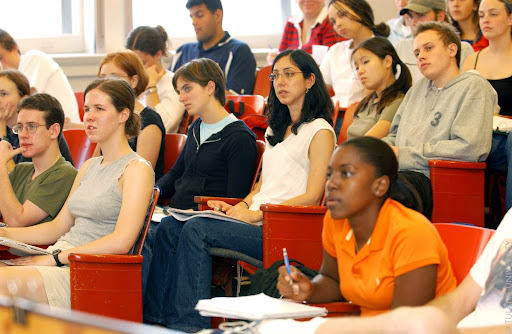Staff Editorial: Beating burnout
Finals. Midterms. Exams. These are the words that strike fear in the hearts of college students across the globe. It is a period where the next four to seven weeks become an absolute hell.
For some, those weeks are a central factor in deciding whether you pass or fail a class. It is a time where countless hours are crammed with studying, rereading, memorizing, and researching. With so much to do, and so little time, it seems that there are not enough hours in a day.
Students begin to feel overwhelmed, and for those who were already losing steam, the sudden dam of responsibility floods over. It destroys the metaphorical town that houses your mental health. And that, my friend, is burnout. If you think that you have never had it, you are either a freshman or in denial.
Burnout is an affliction that many students face when the workload becomes too overwhelming, combined with a lack of sleep and recreation. In addition to feeling overwhelmed, students with burnout find themselves overcome by exhaustion. Burned-out students are likely to be less motivated to do an assignment or study. As stated by thebestschools.org, such levels of stress leave students drained, which leads to a decline in their academic performance.
Knowing what causes burnout is essential. Does it only occur when there are finals and midterms? The short answer is no. While burnout is more closely associated with finals and midterms, they are not the sole causes. It can occur during the first few weeks of classes when students are getting adjusted. New students, for example, might be overwhelmed by the workload of college courses.
Another cause of burnout can be extracurricular activities and work. Many college students participate in at least one extracurricular, whether it’s a club or a sport. Having to stay on top of classes and participate in one or more extracurriculars can be jarring. Work is a whole other monster, especially for those who must inform their employers weeks ahead of time to request time off. All of these factors combine to make for a very stressful and exhausting college experience, equaling burnout.
With finals coming up, many students at Guilford may find themselves suffering from burnout. To preserve your mental health, try to avoid procrastinating on an assignment whenever possible. You might be able to finish it when you get back from events or extracurricular activities, but it is not something that you want to risk. If procrastination is not already a habit of yours, it could very well become one. Instead of hanging out with your friends, you could find yourself cooped up in your dorm trying to pull an all-nighter.
You must learn when to say no and manage your time well. It might sound tempting to join a few clubs and take on more responsibility, but having too much responsibility and participating in too many extracurriculars can leave you drained. Managing your time well can help you avoid procrastinating and still leave some time for fun.
Two more helpful tips from us to you are that you should prioritize sleep and make some time for fun. According to a study of medical students published in 2017, those who do not get an adequate amount of sleep tend to experience burnout at higher rates.
Most importantly, it is important for you to leave some time to have fun. School might be a huge part of your life, but that does not mean that every aspect of your life must revolve around it. You have to take a break every once in a while, either to avoid burnout or to lessen its effects.
As we end the 12-week semester and look forward to summer after three-week classes, remember that nothing is more important than your physical and mental health. We wish you the best of luck in your upcoming finals.






